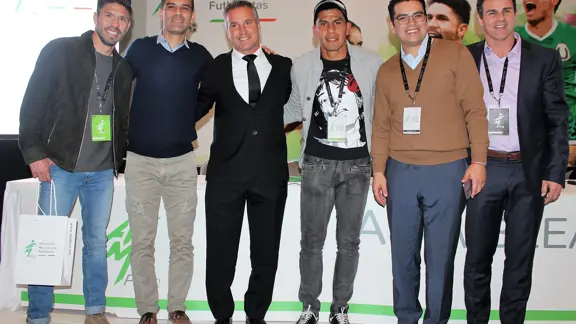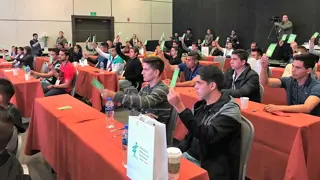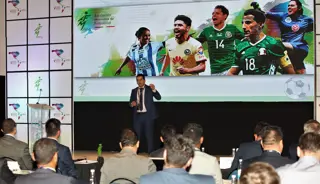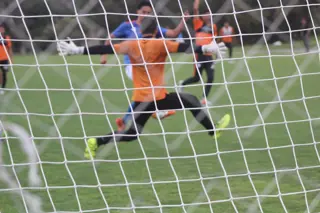News
Mexican union AMFpro: Five years of success and a collective agreement in its sights

As our name says, FIFPRO is a federation of player unions. Currently, 66 organisations are associated within FIFPRO to support professional footballers worldwide.
In the latest of our Union in Focus series, we look at the Asociacion Mexicana de Futbolistas (AMFpro), which last October celebrated the fifth anniversary of its foundation.
History
AMFpro came into being on 7 October 2017. Its creation represented “a historic moment for Mexican football”, but as President Alvaro Ortiz Arellano says, “it all started well before the official presentation, in an effort to begin a new phase in the professionalisation of footballers”.
AMFpro began to take shape in February 2017 when the first working group was organised through the initiative of some of the biggest names in the country’s football scene.
“We got together with those who have now become the pioneers of AMFpro: Rafael Marquez, Oscar Perez, Oribe Peralta, Carlos Salcido, Christian Gimenez, Paulo Da Silva, Javier ‘Chicharito’ Hernandez, Andres Guardado, Guillermo Ochoa, Edson Zwaricz and myself,” Ortiz recalls.
“That was when the former Players’ Committee was transformed and developed, turning into what is now AMFpro, an organisation whose main objective is to represent and protect the interests of professional footballers. It was a historic moment for us.”

To get a real understanding of the various problems they had to tackle, one of their first actions was to organise a first formal meeting with the captains and representatives of the 18 clubs in Liga MX and the 16 in Liga Ascenso MX, the first and second divisions, respectively, of Mexican football at that time.
Ortiz remembers that meeting as a key step in the growth of what was still an embryonic association.
“It was very constructive because it was the first time something like that had been organised. It helped us listen to and get to know the concerns of the leading figures in this sport, who generally expressed their interest in growing and developing in a better environment.”
Current situation
During its five years of existence, many important projects have been carried out within AMFpro, not only in the field of employment rights and free legal advice – “a quiet but very important line of work” – but also education and the development of women’s football.
“We’ve made breath-taking progress in a very short time,” said Ortiz. An example is the renewal of the agreement with Liga MX and the Mexican Football Federation (FMF) for the period 2022–26, which enables the association, among other things, to provide attention and support in making important decisions for its members.
The proudest achievement is the creation of the Rules on Transfers and Contracts, which have been in force since July 2020. “They were agreed after several negotiating sessions with the FMF and Liga MX. It was something that changed the course of the industry and put an end to bad practices towards footballers.”

In the educational sphere, AMFpro has agreements with the Johann Cruyff Institute, the Open University of Catalonia, the MBP School of Coaches and the Virtual Business University.
“The aim is to support the professionalisation of footballers, to motivate them and offer them options so that when they are away from the pitch they can also continue to grow. Even those who never finished secondary school can do so, with very simple programmes and online study at their own pace.”
The Association also organises the AMFpro Team, designed to provide training for players who are temporarily out of contract. It is based in three different cities: Mexico City, Leon and Guadalajara.

Objectives
Despite the constant changes it has experienced in these five years, AMFpro has great scope for improvement and development, mainly because it is operating in one of the most powerful countries, in footballing terms, in the region.
“In the short term we want to consolidate AMFpro at a regional level. We’ve come a long way in five years and now we’re committed to getting a collective agreement for footballers,” Ortiz said. “We know it’s something that can’t be achieved overnight. It’s a process, on which we’ve been working in partnership with those involved, together with specialists in the field, to take a step towards the future.
“I think we’re at a time of change and of greater maturity as an association to take that leap and aspire to achieve what is already happening in countries like Spain, for example, where AFE is already over 40 years old. We are just at the beginning of a great project and our goal is to be a benchmark in the short term for the entire region.
“There are also plans to have the Casa del Futbolista [Footballers’ Centre], a multidisciplinary space for everyone’s benefit.”
